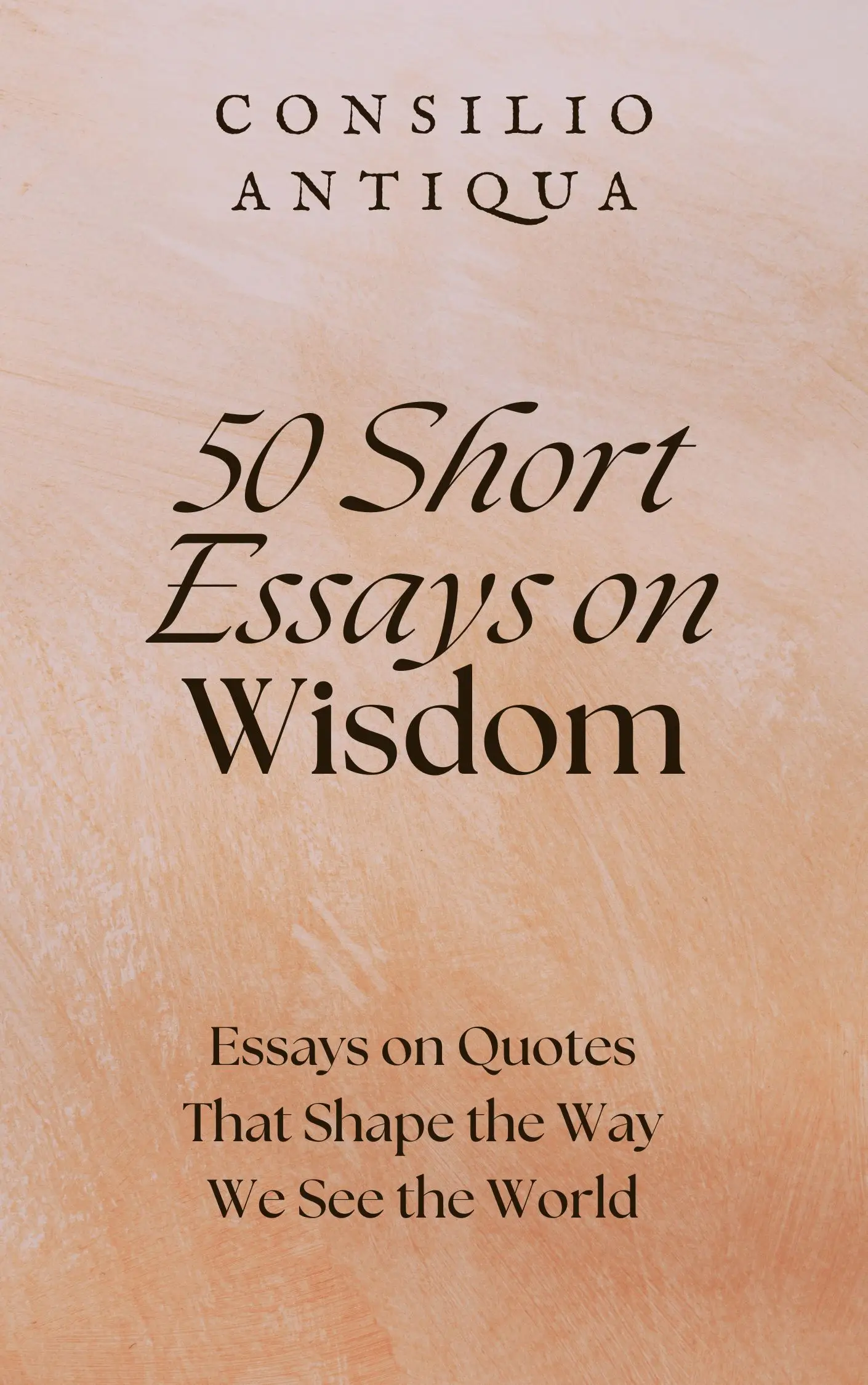
50 Short Essays on Wisdom | The Unbroken Chain
The Unbroken Chain
"Two wrongs don't make a right." - Unknown
The flickering gaslight cast long shadows across the cobblestone street, illuminating a scene of simmering anger. Two figures, faces contorted in fury, exchanged harsh words, each jab a fresh wound. The air crackled with the potential for violence, a palpable tension hanging heavy in the humid night. This scene, though specific to a time and place, echoes across centuries, a testament to the enduring human struggle with the age-old adage: two wrongs don't make a right.
The concept of reciprocal justice, the eye-for-an-eye mentality, is deeply ingrained in human history. Ancient legal codes, from the Code of Hammurabi to the Mosaic Law, often prescribed retribution as a form of justice. The very structure of these codes, however, implicitly acknowledges the inherent limitations of such an approach. While providing a framework for societal order, they also hint at the potential for an endless cycle of vengeance, a chain reaction of escalating harm. Philosophers like Confucius, with his emphasis on restorative justice, offered a counterpoint, suggesting that true peace lies not in retaliation but in reconciliation.
At its core, the wisdom "two wrongs don't make a right" speaks to the futility of seeking redress through mirroring aggression. It's a recognition that violence, whether physical or emotional, begets more violence, perpetuating a destructive cycle. It's not simply a moral imperative; it's a pragmatic observation about human nature. The desire for revenge, while understandable, often clouds judgment, leading to impulsive actions with far-reaching consequences. The satisfaction it offers is fleeting, a bitter taste quickly replaced by the lingering bitterness of unresolved conflict. This wisdom endures because it speaks to a fundamental truth about the human condition: our capacity for both great cruelty and profound empathy.
In our hyper-connected world, this wisdom takes on new urgency. The ease with which we can spread misinformation, engage in online harassment, and participate in echo chambers of anger fuels a culture of retribution. Cyberbullying, for instance, often escalates into a vicious cycle of attacks and counter-attacks, leaving victims emotionally scarred and perpetrators hardened. Similarly, political polarization often manifests as a tit-for-tat exchange of accusations and insults, hindering constructive dialogue and eroding social cohesion. The challenge lies in recognizing the insidious nature of this cycle and consciously choosing a different path.
Consider the alternative: restorative justice. This approach prioritizes healing and reconciliation over punishment. It seeks to address the root causes of conflict, fostering empathy and understanding between those involved. While challenging to implement, restorative justice offers a powerful antidote to the cycle of revenge, replacing the bitter taste of retribution with the sweeter fruit of forgiveness and understanding. It requires a conscious effort to step outside the immediate emotional response, to see the humanity in those who have wronged us, and to recognize the potential for growth and transformation.
The question then becomes: how do we break the chain? It begins with self-awareness. When faced with injustice, take a breath. Observe the rising tide of anger, the impulse to retaliate. Ask yourself: what is the true cost of revenge? What will I gain, and what will I lose? Consider the potential for restorative practices, for dialogue, for understanding. The path of forgiveness is not always easy, but it is often the most rewarding. It is a path that leads not to an endless cycle of suffering, but to a future where healing and reconciliation are possible. The quiet strength lies not in mirroring the wrong, but in choosing a different, more compassionate way. The unbroken chain is the chain of empathy, the chain of understanding, the chain of peace.
